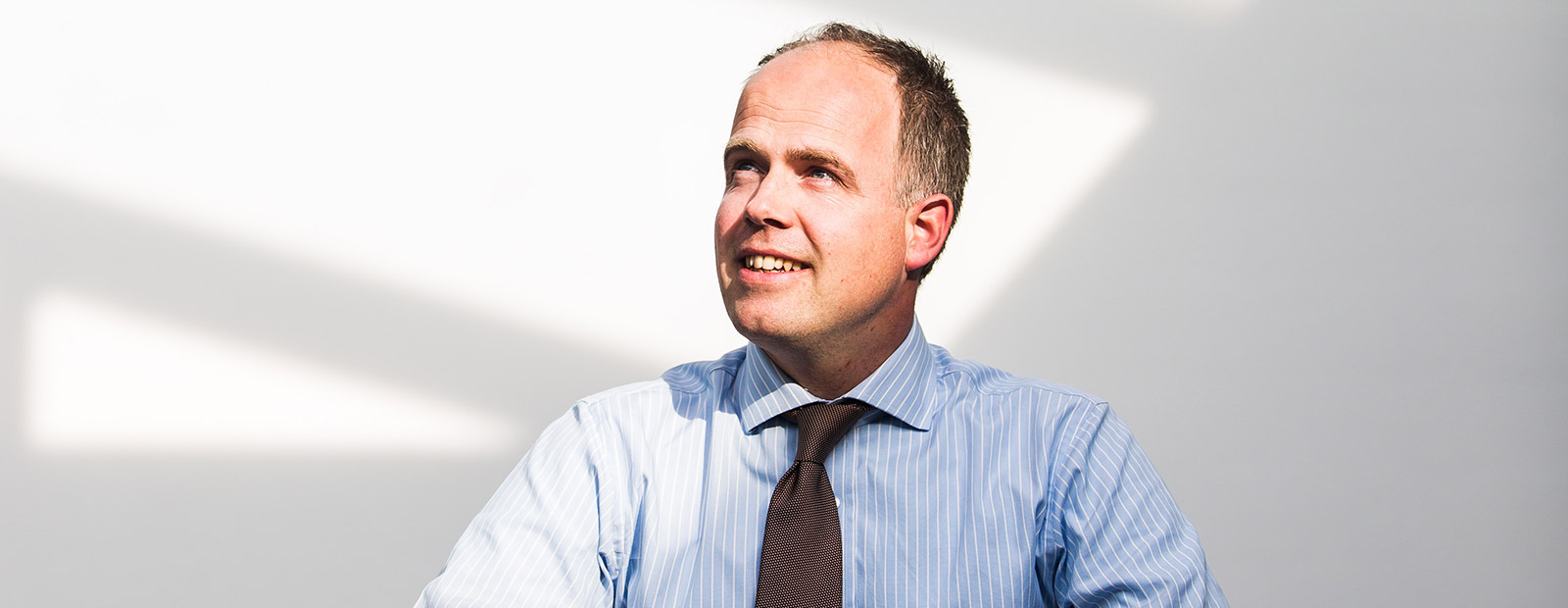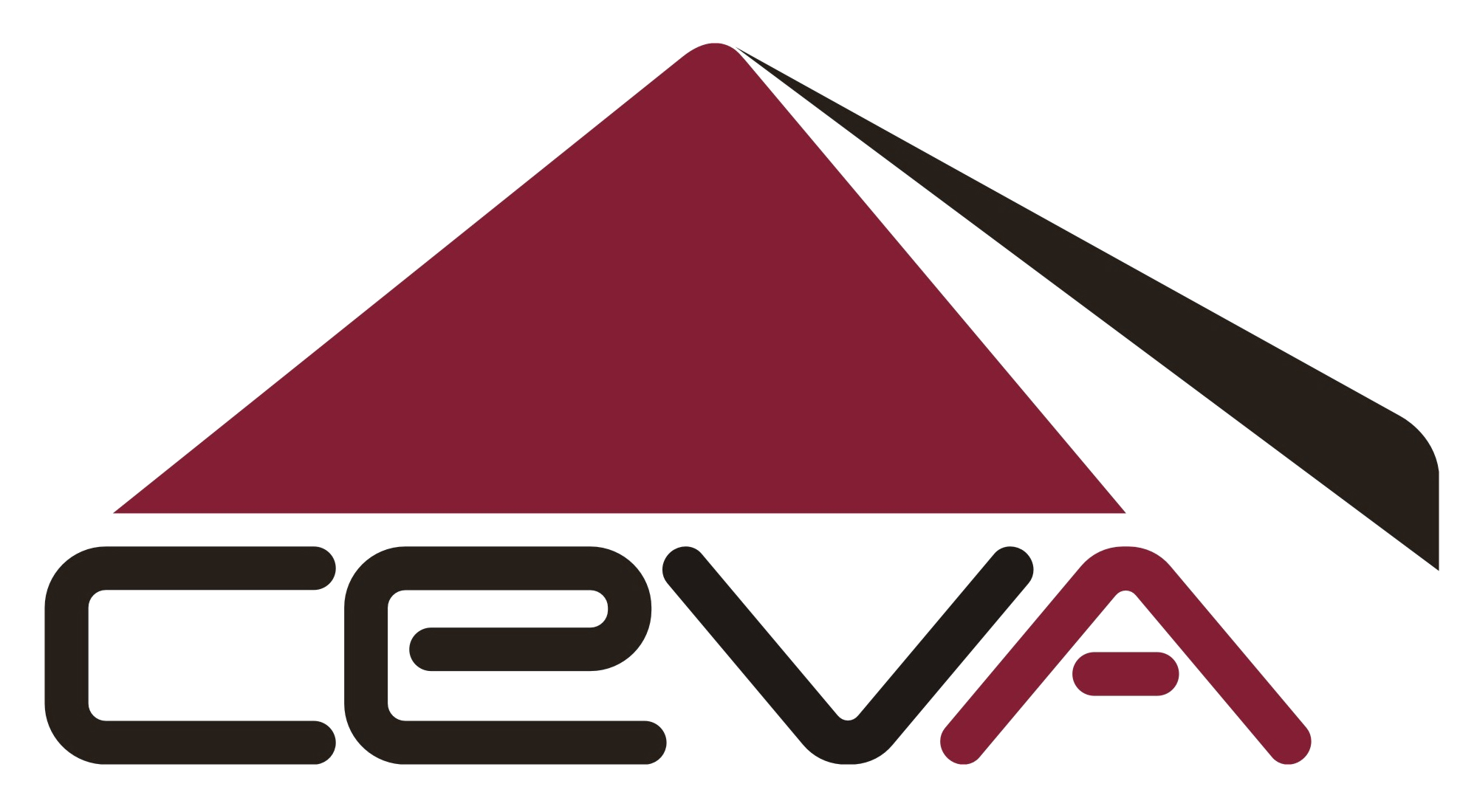
Willem Veekens

What makes supply chain management so exciting?
“Observing changes and continually capitalising on this. For example, customer patterns change, which has consequences for the entire supply chain. A couple of years ago, people used to go to the supermarket once a week to buy all of their groceries at once. These days, smaller purchases occur more frequently. This includes online purchases. The result is that our clients need to organise their products, information and finance flow differently.”
Could you name one of the biggest recept developments?
“Late-customisation. Due to customers’ changing needs, retailers increasingly want to be able to act more quickly . This means the supply chain also needs to be smarter and quicker. Take mobile phones. They are being produced in Asia, but if you already prepare the batches there for the country of destination, the product only arrives at the customer eight weeks later. Yet local shops want to be able to plan a promotion or offer much sooner. To keep the time-to-market as short as possible, we develop models which source a big generic stock in China, which can be stored in Europe and customised as late in the game as possible. If the devices are not sold during a promotion in France, they can be re-customised for the German or Italian market.”
What is your connection to Asia?
“As part of my Technical Business Administration studies at the TU Eindhoven, I did an Erasmus exchange year in Trondheim (Norway) and an internship in Malaysia. What a world of difference! Such delicious food and what a vibe! Shops stay open late; people don’t lock themselves up in their homes after work; even children aren’t an excuse to take it easy – whatever happens, life goes on.”
And that experience with Malaysia never left you.
“Exactly. During my graduation internship at TNT, I won an internal competition allowing me to go to Harvard. But after almost six years at the TU, I wanted to do something different. What I wanted most was to go back to Asia. That is why, in 1999, I travelled the world with my partner, and I agreed that in 2000 I would finish my trip in Hong Kong, where I would work for TNT Express for a year. After that project, I was able to work at the headquarters in Hoofddorp. I began working there as a Logistics Analyst but soon became an IT Project Manager. I was responsible for sourcing and organizing data centers and networks. Because I was still very much in love with Asia, it was great that, in 2003, I was able to go to Shanghai in connection with a Management Development Programme.”
What did you do in China?
“Various automotive customers (General Motors and Volkswagen) which were geared at building millions of cars in China. But nothing was in its place there yet. With a small group of expats and hundreds of Chinese, I developed a massive logistics system for the factories to ensure the right parts arrived on time in the right color and order. After a year and a half, this changed into an operations role with warehouse responsibility.”
What was it like to work with local talent?
“Initially, hardly anyone spoke English, which meant we had to work with an interpreter. After five years, my level of Chinese was reasonable - I knew the numbers and figures particularly well. That helped in negotiations and also commanded respect. The Asian urge for growth and hope for more is fantastic to witness up close. Local colleagues began without any background knowledge and became advanced supply chain masters within a short period of time. To teach them the basics of the automotive industry and a basic command of the English language we gladly sent them to Italy or America for six months. Because of the communist totalitarian regime in China, it was quite a challenge to arrange a business passport for these people to leave China – and CEVA had to guarantee they would come back.”
What did your family think about you going to Shanghai?
“My wife gave up her job at Unilever and came with me. In China, she was rehired by Unilever where she worked for four years until our baby was born. Working four days a week was not possible so she started her own company: organizing tourist tours with Dutch guides. We had often done this for friends who came to visit and it proved quite a success.”
Why did you decide to come back to The Netherlands?
“That was a very deliberate choice. The company offered us the option to stay in China or to go to Japan, Hong Kong or Singapore, but the longer you stay in Asia, the more difficult returning to the west becomes. For me, the emphasis in Asia was on imparting knowledge, but I still wanted to learn a lot as well. It was time to return to Europe so that I could further enrich and develop myself.”
Do you think the West is still ahead of Asia?
“With hindsight, it turned out not to be as bad as I had anticipated. Initially, Asia was lagging behind, but developments accelerated at a much faster pace; the growth curve and energy there are amazing. Working weeks of four days and two cars per household are standard here; in Asia, people had nothing. Europeans work to stay prosperous. In Asia everyone seeks prosperity. The power of hope far exceeds the desire to preserve what you have. When we first arrived in Shanghai, there were ten restaurants that served western food. By the time we left, there were more restaurants that did so, than there are in Utrecht, where I live now. It is fantastic to see how the city has developed in the space of five years – especially compared to the Netherlands. When I left, they had started widening the A2 high way between Utrecht and Amsterdam, and when I came back it wasn’t finished yet. In Shanghai they built a complete metro network in the run-up to the Games in just two years’ time. Here, the North-South line is still a work-in-progress.”
Do you regret coming back to The Netherlands?
“No, the Netherlands has amazing clean air and beautiful forests where I can go mountain biking with the children. The boys are six and eight now, and I love taking them to football or swimming occasionally. It is a good place for them to grow up and it is nice living close to family and friends again. In terms of work, there are more than enough challenges too.”
What challenges keep you on your toes here?
“Not long after TNT became CEVA, we had the credit crunch. When existing customers economise, Business Development becomes all the more important - but that isn’t easy when you have to work on name recognition. But still, we added some big high-tech customers to the portfolio.”
What is it you like about CEVA to the extent that is has kept you there for over 10 years?
“It is an ambitious company with a strong focus on growth. There is always room for talent, which means I have inspiring colleagues. Currently, we are actively looking for a Business Development Manager. Our customers face complex supply chain challenges. It brings a great deal of satisfaction to work out customized solutions and in the long-term to further optimise or reorganize the supply chain.”
How do you see the future of supply chain management?
“How will Google Glass change the world? What apps will be developed? Some unparalleled developments are going to be unleashed on us. Take the effect of 3D printing for instance. Will we still need air freight when the entire manufacturing industry moves here? In a couple of years there might even be print-on-demand shoe shops! And that will be an entirely different supply chain – all you will need to supply is raw materials and spare parts for the printer. The world will really be a different place. If we ask clients where they will be in five years, they don’t know either. They think that there will be more e-commerce and small-scale patterns, but even the near future is pretty unpredictable.”
2015 – now
VP Contract Logistics Benelux, CEVA Logistics
2011 – 2015
VP Business Development Benelux, CEVA Logistics
2008 – 2011
Director Industrial Sector, CEVA Logistics
